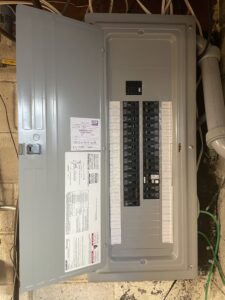Energy Efficiency
Energy efficiency means reducing energy consumption while maintaining comfort and functionality to perform the same tasks in your home. Your home may be leaking heat and air conditioning, which means energy and money are wasted. A professional Home Energy Assessment will identify areas in need of improvement and suggest solutions. For a DIY approach, simple checks like sealing drafts, upgrading insulation, and replacing inefficient light bulbs will help make a difference.
Schedule a Home Energy Assessment
A Home Energy Assessment is perhaps the most important thing you can do to ensure your home is using energy efficiently, and that you aren’t paying for lost heat and cooling. During an audit, a technician will survey your home’s insulation, heating, ventilation, and cooling (HVAC) systems, and more, to determine measures you can take to improve your home’s energy efficiency, as well as your own comfort and safety.
By ensuring your home is energy efficient, you can lower your monthly utility bills and your carboon footprint!
After the audit, you will receive a detailed report that identifies the specific financial incentives that are available to help cover the cost of improving your home’s insulation or heating systems. The more energy-saving measures you decide to install, the greater your incentive and the long-term savings on your utility bill.
Even if you are not able to act on your audit right away, your home energy audit will help you make informed decisions over the life of your property.
Take Action Now
Learn more about the Municipality of Princeton’s campaign and schedule your business assessment today with a contractor certified by the Building and Performance Institute (BPI).Contractors Ciel Power and Green Home Solutions offer Princeton residents a discounted price for a thorough, 3-hour audit. To date, several hundred Princeton homeowners have conducted home energy audits and many have completed retrofit projects. Keep up the good work, Princeton!
DIY? Here's what you need to do.
- Stop the leaks: Caulk and weatherstripping are two simple and effective air-sealing techniques that typically pay for themselves within a year. To prevent air leaks, use caulk to seal cracks around door and window frames, and apply weatherstripping to doors and windows.
- Keep it cozy: Insulate attics and access doors. Ceilings, floors, walls, joists, wiring, and plumbing should also be insulated, and each of these areas will have different insulation needs.
- Breathe easy: Once you’ve sealed the house, controlled ventilation is important to prevent the buildup of pollutants and moisture.
- Say no to mold: Moisture control is necessary to protect your health and keep your home energy-efficient. Strategies vary depending on the location and source of the moisture and include air sealing, insulation, and ventilation.
Check out the Do-It-Yourself Guide to Sealing and Insulating to learn how to locate and seal leaks and add insulation.
The U.S. Department of Energy’s Weatherize webpage is loaded with information, too.
Appliances and Gadgets
New technology in energy-efficient appliances and gadgets means you can keep your home more comfortable and pay less on your utility bills.
Air Source Heat Pumps
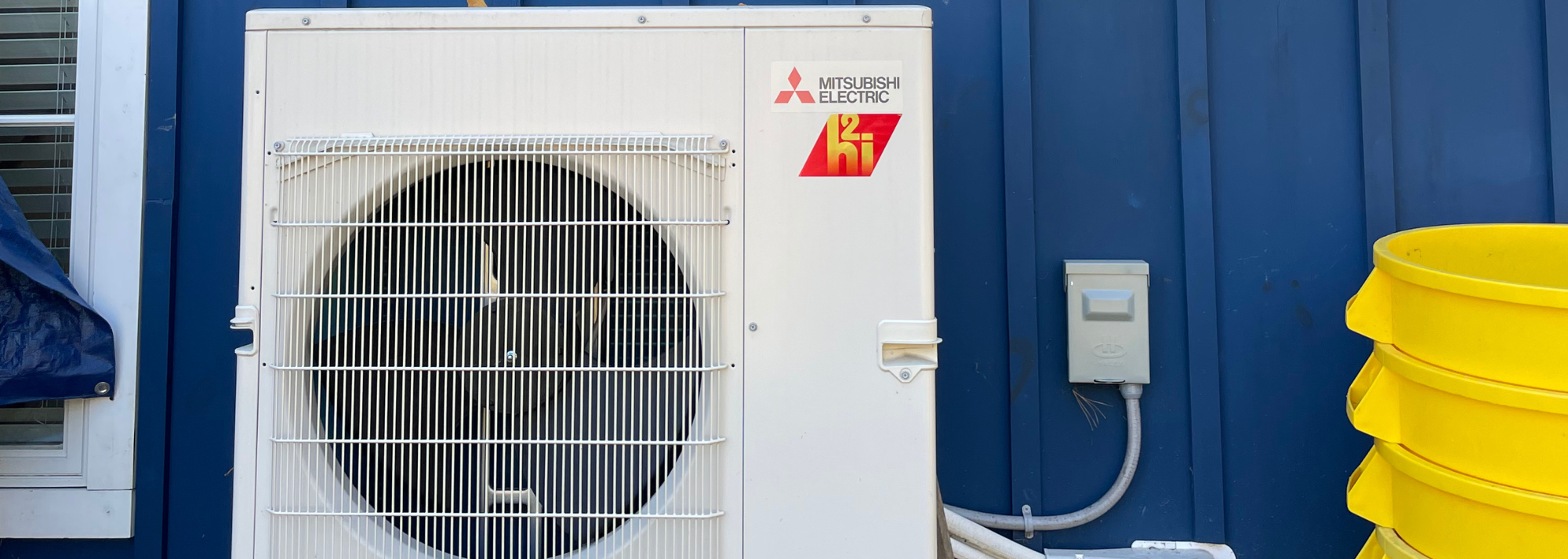
Heat pumps use electricity and a refrigerant system to move heat from one place to another, rather than creating it. They can also be used to cool in the summer by moving the warm air outside. Check out Rewiring America for more information on how it works, rebates and incentives, and more!
Ground Source Heat Pumps

Geothermal systems utilize naturally occurring temperatures within the Earth. Just like a cave, the Earth’s subsurface temperature remains at a constant temperature between 50-60 degrees throughout the year. A geothermal system consists of a pump and a closed loop of pipes containing an antifreeze/water mixture buried underground before entering your home. The pump transfers heat from the earth into your home in the cold months and transfers the heat from your home to the earth in the hot months. Check out Rewiring America for more information on geothermal incentives.
Heat Pump Water Heater
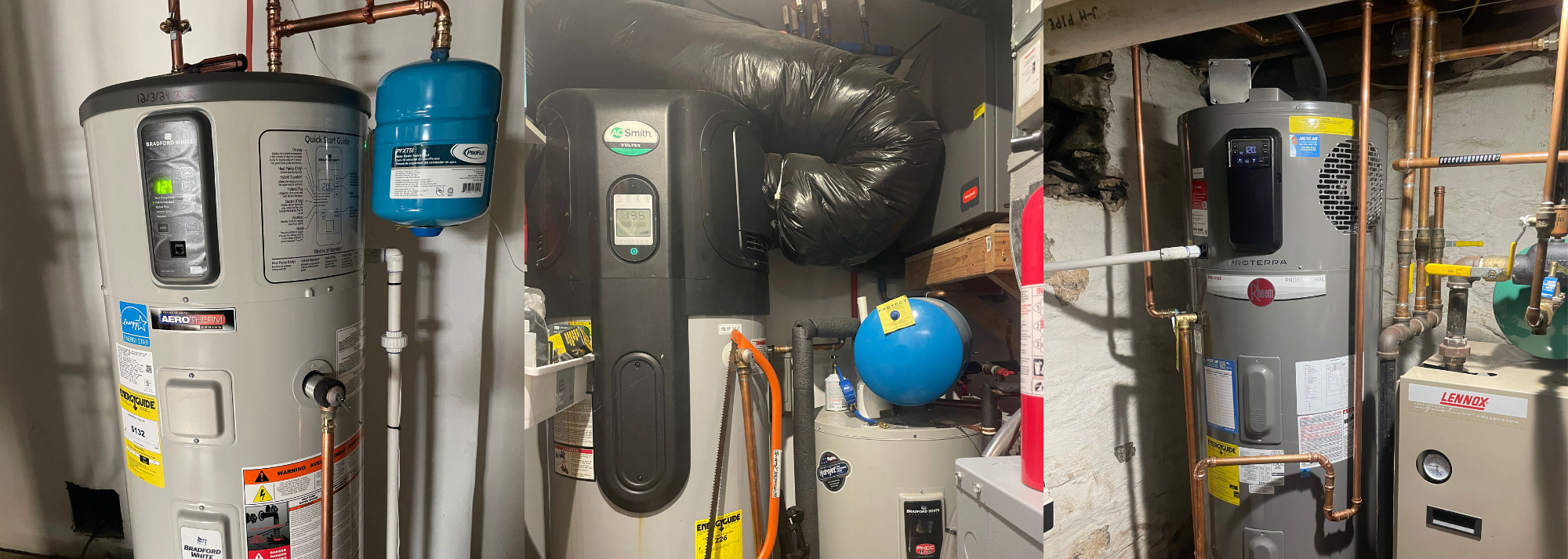
Just like the heat pumps that are used to heat and cool your space, heat pump water heaters transfer heat from the air around it. An electric water heater generates heat itself which is less energy efficient than a heat pump water heater. Check out Rewiring America for more information on how it works, rebates and incentives, and more!
Heat Pump Clothes Dryer
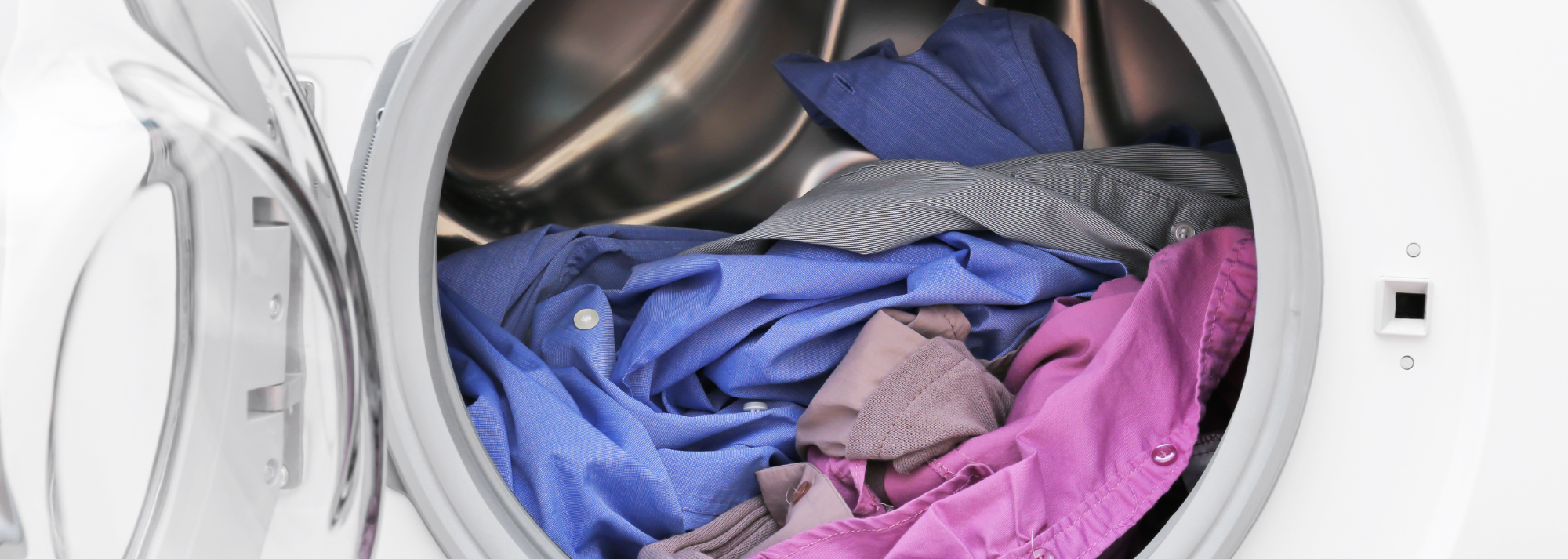
Unlike natural gas or electric clothes dryers, heat pump clothes dryers use a refrigerant system to pull air from around the dryer instead of using a heating element to create hot air. This makes them much more energy-efficient and gentler on clothes. Electric dryers don’t emit carbon dioxide like natural gas dryers, but heat pump clothes dryers are the most efficient type of electric dryer. Check out Rewiring America for more information on how it works, rebates and incentives, and more!
Induction Cooktop
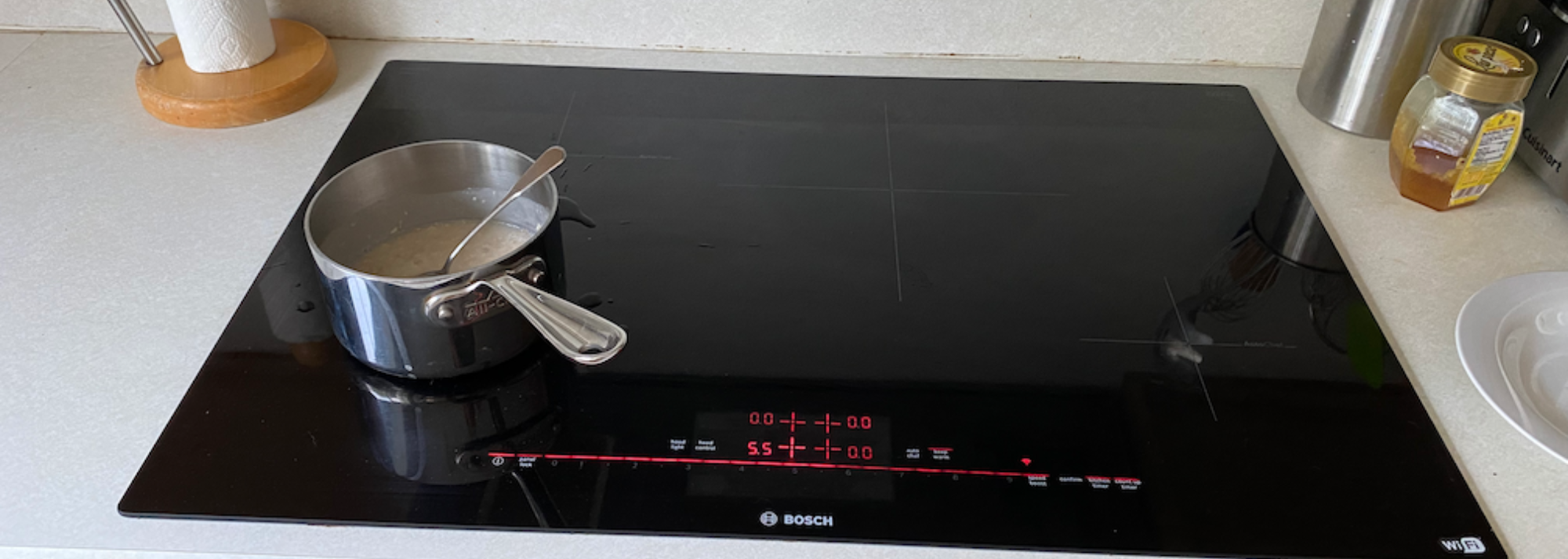
Induction cooktops use electromagnetic energy to directly heat cookware, offering faster, more energy-efficient cooking compared to traditional gas or electric stoves. Check out Rewiring America for more information on how it works, rebates and incentives, and more!
Smart Thermostat
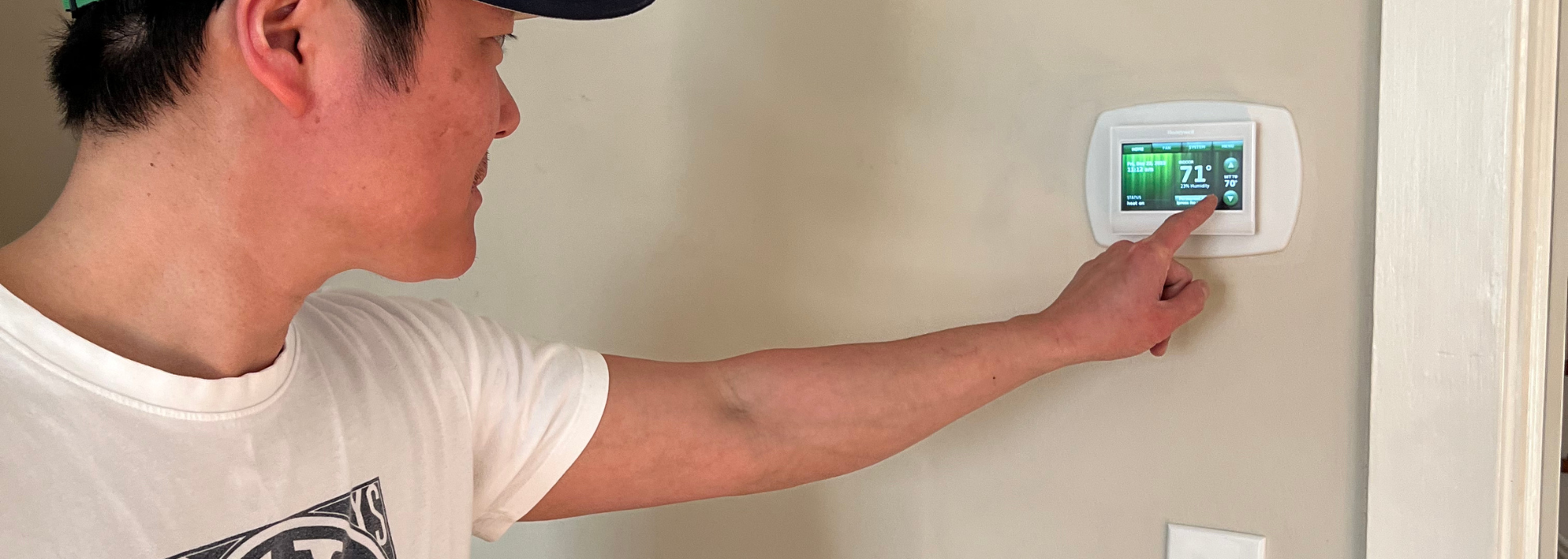
A programmable thermostat can be set to reduce heating and cooling when you are away or asleep. Take it even further with a smart thermostat, which can adjust temperatures automatically based on your behavior or be controlled from anywhere! Check out the PSE&G Marketplace for rebates and incentives.
Smart Strip
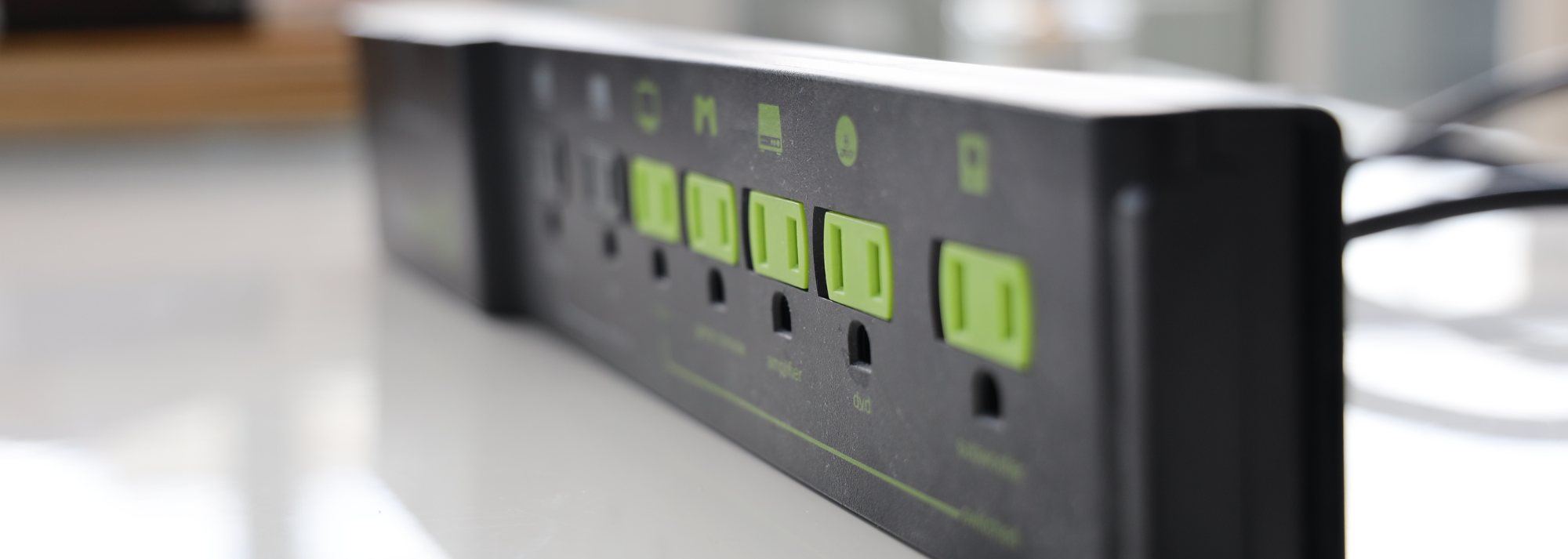
There are many types of smart power strips. They can be operated by a programmed schedule, a remote switch, or based on the status of a master device. In the latter case, a master outlet (e.g., TV or computer) controls the power of the other outlets, so when you turn off the master device, the electricity is automatically cut to all the other outlets. Check out the PSE&G Marketplace for rebates and incentives.
For other energy efficiency appliances, check out EnergyStar to compare models, prices, and energy use!
Before changing your appliances, you may need to upgrade your electrical panel! Check out Rewiring America for more information on why you might want to upgrade your panel, rebates and incentives, and more! Contact the Electrical Subcode Official for any code related questions.
